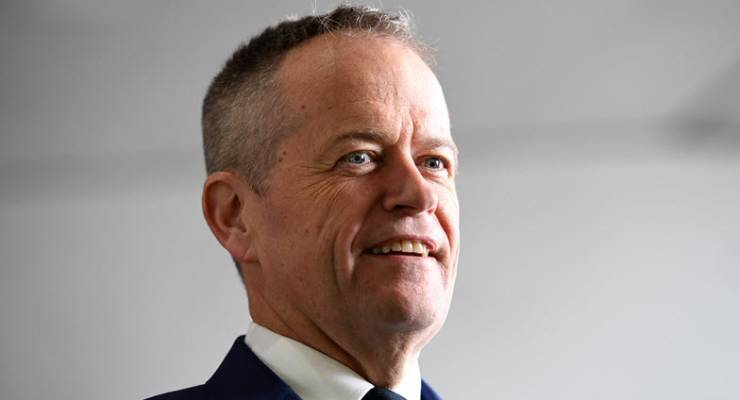
Presumably — if they can afford it — the Liberals have a pile of focus group research on Bill Shorten that tells them voters haven’t quite worked out that Shorten is untrustworthy, semi-corrupt and dangerously left-wing, so just a little more persuasion on each of those points will seal the deal and voters will turn their backs on Labor to re-embrace the government.
Otherwise, nothing could explain why the government is choosing to focus so much on the Opposition Leader when the universally agreed problem of the government — including by its own ministers — is that the government appears to voters to be distracted from issues that are actually important to them.
There must be some logic, some evidence to why they’re doing it. But there seem to be a number of problems with it.
- Every minute spent attacking Bill Shorten is a minute that could have been spent focusing on the government’s strong record of employment growth, how it is dealing with electricity price rises and how it intends to restart wages growth.
- Voters have already made up their minds about Shorten: they don’t like him very much. But they dislike Malcolm Turnbull about as much. And it doesn’t stop them backing Labor, just as Tony Abbott’s unpopularity didn’t stop voters electing the Liberals in a landslide in 2013. Even when Shorten’s popularity reached its nadir — he scored just 27% approval in the Essential poll when he appeared before the Trade Union Royal Commission in July 2015 — Labor still led the government 52-48%.
- Arguing the toss about inequality misses the point. First it was Scott Morrison disputing that inequality had risen. Last night Mathias Cormann spoke about intergenerational income mobility, which he admitted “[s]ome dismiss these sorts of measures and indicators as too complicated and hard to communicate.” We’re all for ministers trying to explain nuanced concepts to the electorate. But what the government is missing, or can’t think of a way to refute, is that Shorten’s basic argument is that the economy is only working for the well-off, that the trade-off intrinsic to neoliberalism is no longer functioning. That trade-off is: market economics will mean corporations and the wealthy will become significantly wealthier and more powerful, but everyone else will also benefit from rising living standards. And after years of stagnant or negative wages growth and perceived high levels of foreign worker entry, voters are no longer willing to support the neoliberal agenda.
- Calling Shorten a left-wing leader might play well at Liberal Party branch meetings and with the commentariat but it means little to most voters. Cormann is right to note that many young voters have no understanding of how economically damaging socialist economic policies can be. But that relies on the fantasy that Shorten really is some kind of socialist. Yes, he’s the most left-wing Labor leader in generations. But Malcolm Turnbull is the most left-wing Liberal leader since Malcolm Fraser, and not for his social policies — he is pursuing a highly interventionist and protectionist economic policy. That’s because the electorate has shifted toward interventionism and won’t tolerate being told governments shouldn’t meddle with markets any more. Shorten’s no Jeremy Corbyn. He’s not even much of a Bernie Sanders, who in any event is far more mainstream than the British leader.
- The Liberals need to get their story about Shorten straight (so to speak). The criticism of Shorten used to be he believed in nothing but his own ambition. Even now we’re told there’s something dodgy about his union past, that he was too close to business and billionaires like the Pratts (sucking up to the Pratt family is apparently OK if it’s Malcolm Turnbull doing it, as he was yesterday). So, one narrative is of Shorten as the amoral self-promoter, happy to quaff champers with the business elite while screwing over his own workers. But at the same time Shorten’s a raving lefty ready to reintroduce socialism and drive the rich screaming from the country with his punitive tax regime and class warfare. It can’t be both. Which is it?
Maybe there’s a plan in all this, some clever strategy. But at the moment Shorten appears positively delighted about whatever it is the government is trying to do to him.








“…how damaging socialist economic policies can be…”
Isn’t China about to become the world’s largest economy? Seems like centrally-planned economies are doing okay by me.
LOL Damn right, or should that be damn left?
“Maybe there’s a plan in all this, some clever strategy”. No – they are just a bunch of incompetent arseholes, who are giving Trump a run for the title of the most useless, self-obsessed “government” in the western world.
“Cormann is right to note that many young voters have no understanding of how economically damaging socialist economic policies can be”
…but if they’ve been to Iceland, Ireland, Portugal, Greece, Spain, rust belt America etc they might have an understanding of how damaging neo-liberal economic policies can be.
It’s not about Shorten. It’s about Talcum Furball. He’s a strong leader you know.
AN example of the vacuous nonsense that the Finance wing espouses. Cormann is a twerp and we would be better if he went back to where he came from.
Whilsts not defending Cormann (or twerps) he seems to be one of their best performers. How Dutton is getting the treatment while Cormann is still breathing is beyond me?
The only thing going for the Colonition is Turnbull’s personal popularity over Shorten’s. So, ramp up the spurious notion that an Australian Prime Minister is akin to an American President. And the Murdoch Press will run with it too of course but will the average Aussie?